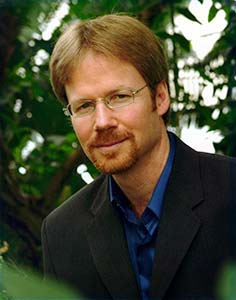About Loren H. Rieseberg
Loren Rieseberg received his Ph.D. in 1987 from Washington State University. After six years at the Claremont Graduate School in Southern California, he came to Indiana University as an Associate Professor. He was promoted to full Professor in 1997 and named Class of '54 Professor in the same year. In 2004, he was awarded Distinguished Professor. He has served as Director of the Plant Sciences Graduate Program and as an Associate Chair of the Department of Biology.
Professor Rieseberg's research focuses on the origin and domestication of plant species, particularly sunflowers. His work has addressed some of the most controversial issues in evolutionary biology, including the means by which new species arise, the nature of species, and the role of hybridization in evolution. He also has developed a new theory of chromosomal speciation and has led efforts to test the theory empirically.
Professor Rieseberg received the Cooley Award in Plant Systematics 1990, and in 1998 he was chosen for the David Starr Jordan Award, which is given once every three years to a scientist under 40 years of age for "innovation contributions to the study of evolution, ecology, population, or organismal biology." Professor Rieseberg has served on the Council of the American Genetics Association, and on the editorial boards of more than a dozen journals. He currently edits Molecular Ecology.


